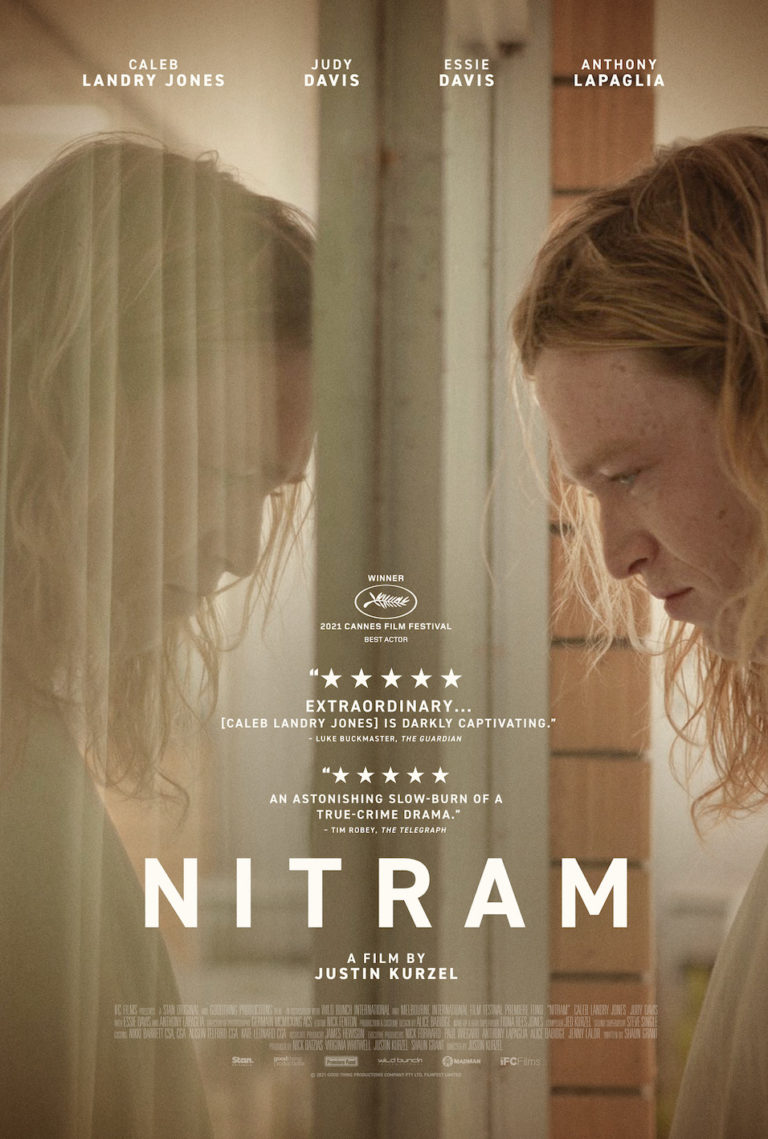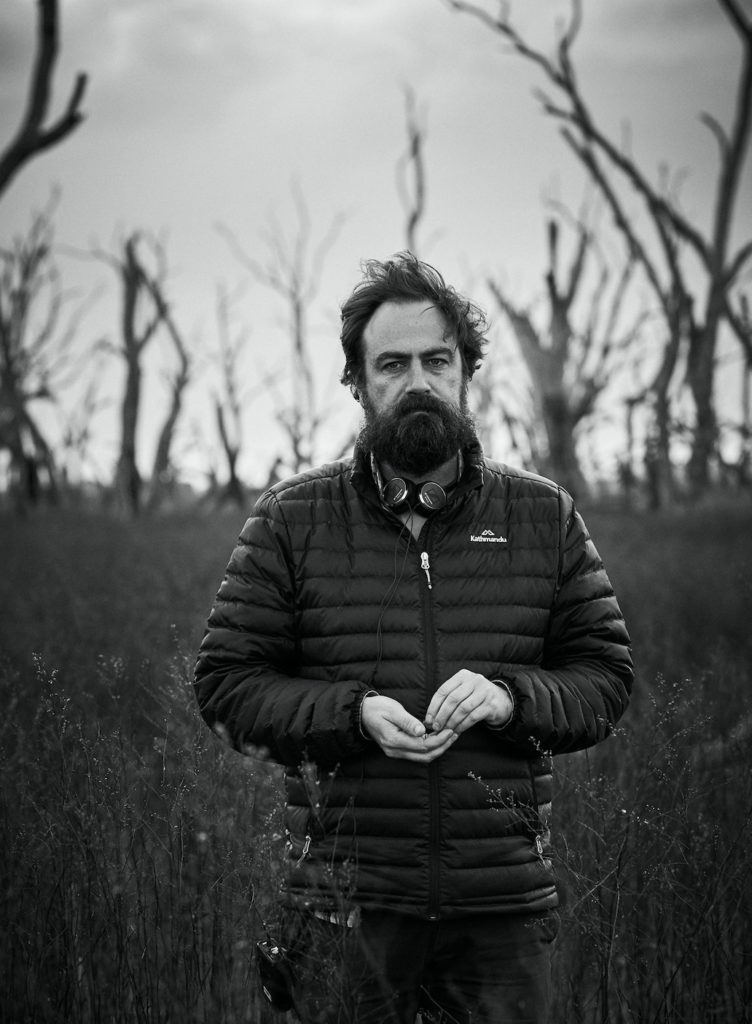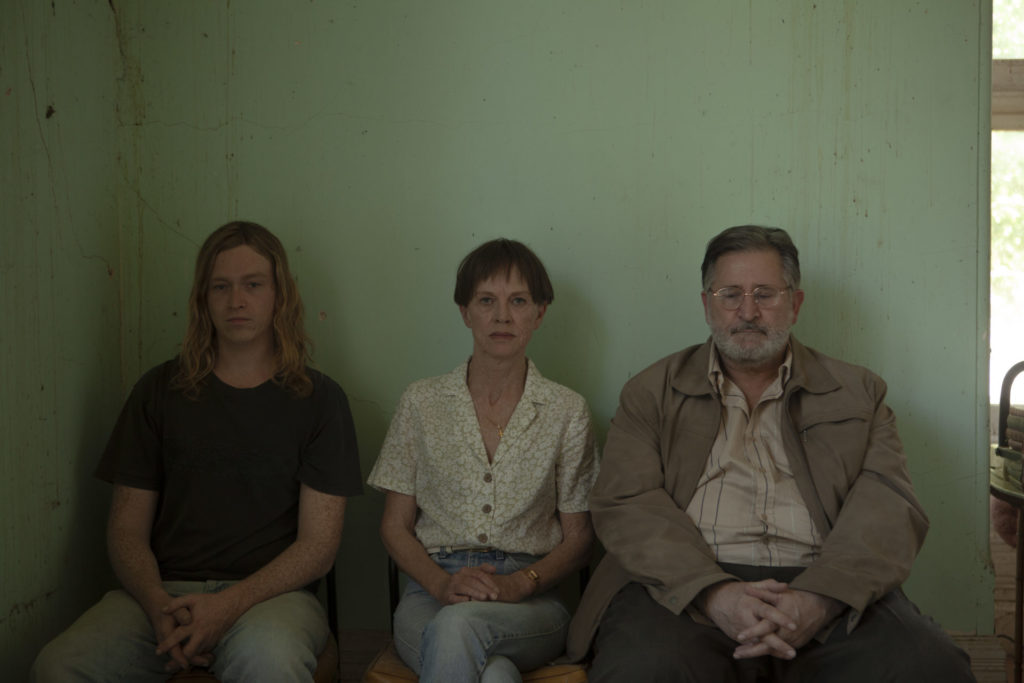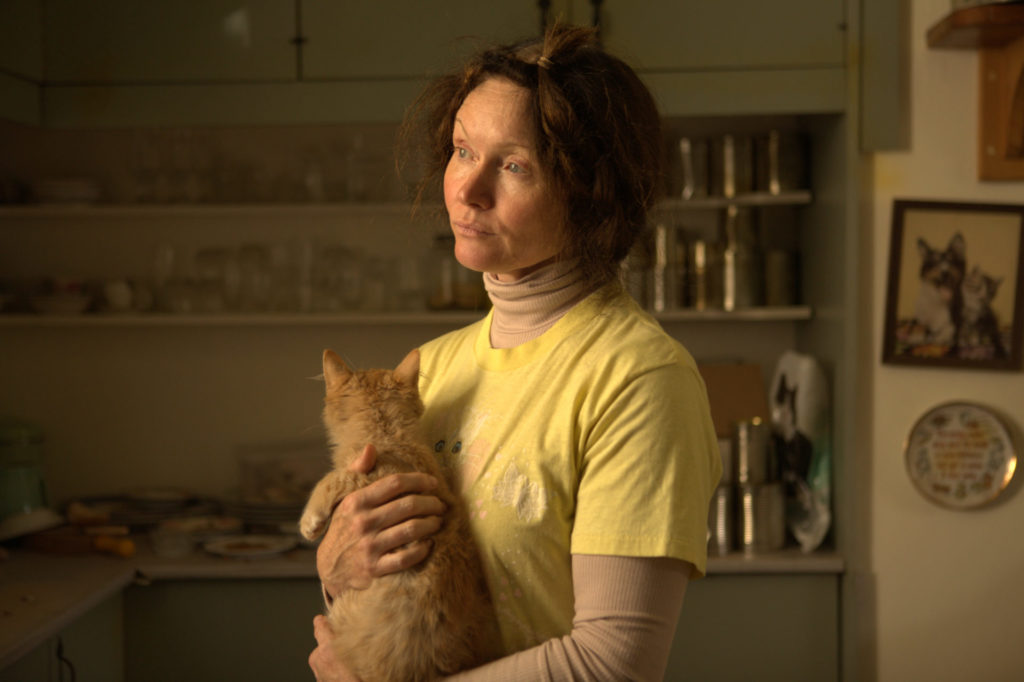
Synopsis : Nitram (Caleb Landry-Jones) lives with his mother (Judy Davis) and father (Anthony LaPaglia) in suburban Australia in the Mid 1990s. He lives a life of isolation and frustration at never being able to fit in. That is until he unexpectedly finds a close friend in a reclusive heiress, Helen (Essie Davis). However when that friendship meets its tragic end, and Nitram’s loneliness and anger grow, he begins a slow descent into a nightmare that culminates in the most nihilistic and heinous of acts.

An Exclusive Interview with Justin Kurzel
Q: So when the Port Arthur shooting incident happened, you were in your early 20s. What was your first impression then, and how did that lead to making this film?
JK: Essie(Davis) and I had just started seeing each other, and I remember her reaction and the family members, because it’s such a small place where everyone knows each other. I felt it very strongly, and the shock and the horror of it. Everyone knows where they were, and it was something that changed the country and especially Tasmania.
Q: During the research process, how did that perspective change you to make this film?
JK: Well, Shaun Grant(Writer), who I made a couple films with before — we’ve done three now — was living in Los Angeles and had some close calls with a couple of shootings in America. He was angry and frustrated about it and decided in a fever to write it. He felt for the first time that he understood how he could write a film about these events, how he could write a film to show the absurdity and horror of gun laws.
So he started writing this film, and I think they knew about it at the time. And as we were going through the trial, it’s interesting, it sort of developed into a film about parenting, a film about mental illness, a film about outliers — those we cross the road to try to avoid. There was something very recognizable and familiar about this sort of family that he was writing the film about.
So it definitely evolved, and I read it and I was really moved by it. And I felt compelled that there was a story there told sensitively, respectfully, but at the same time be a really powerful film about gun reform.
Q: What kind of conversation did you have with actor Caleb Landry Jones prior to shooting this film? This film really relies on his performance. Could you talk about that?
JK: Yeah, we met him in Los Angeles and he had some very, very sophisticated thoughts about the script and about how he would possibly play the character.
For me, it was about immersing him very, very quickly as much as possible into Australian culture and into what it is to be a young man in Australia and especially in the 90s in Australia. So it was about trying to get him over to Australia pretty quickly, and while he was here, making sure that he was surrounded by a world that reflected the screenplay.
For example, the character is desperately trying to be accepted by the surf culture. So it was important to get Caleb down on the beaches and get him out on a surfboard and make him feel what it’s like to want to be part of another tribe and not being accepted into that tribe.
So there was a lot of very simple, practical things that we did with him, as well as working on the accent, the technical side of that. But also, how it would seem with Caleb.

Q: Caleb is a Texan, so how did you work with his accent? He sounded like he came from Australia. Could you talk about that?
JK: Well, we had an amazing voice coach, Jenny Kent, who helped him in a very intimate way. And then he watched a lot of Australian TV, he was around Australians all the time. I think there is something about being a Texan that has a similarity in a strange way to the Australian.
And then lastly, he is a musician. He’s got a very good ear. And then he was just doing it every day. He wouldn’t stop at morning and night after the shoot, he would keep on speaking in Australian.
So I think just immersing himself helped enormously as well. I think all of that helped him have a pretty quick crash course on the Australian accent.
Q: Prior to this interview, I had a chance to watch Channel 7 news, probably twenty years after the incident. I was fairly surprised that subject’s parents were quite normal and very understanding, not abusive or neglectful parents, which is totally different from probably any other typical shooters. Do you find that fascinating?
JK: Yeah, because where they lived here in Tasmania is in North Hobart, and that’s a pretty affluent place. The family wasn’t living in a disenfranchised area where the parents were doing the best they could. That domesticity, or that typical Australian suburbia aspect of it, really interested me. That was something that we were really keen to try to place in the film.
We didn’t want it to feel like everyone is the way they are because they’re living in a disenfranchised, poor area. It wasn’t that at all, it was actually something ordinary, very middle-class about the family and about the environment.
Q: You had a great cast: Judy Davis, Anthony LaPaglia, and your wife Essie Davis as well. Not only did they give great performances, but they also elevated Caleb’s performance as well. So how did you talk to the other actors to achieve the performance, that vision that you wanted?
JK: Well, I think they helped a lot in that a lot of the film. The character Nitram is seen through the eyes of those others. So I would use them in the way they look at him, in the way they watch him.
It said a lot to the audience as to what the temperature of the character was throughout the film, so that their point of view is really interesting. How I filmed Nitram through them became very important.

Q: Did you talk to a lawyer like John Avery or a mother, or any other real person? How much research did you do, talking to people like that?
JK: No, we didn’t speak to anyone. It was a screenplay that Shaun felt he had enough information that he needed to write a dramatization of it. We didn’t have any conversation with the parents or the trainer or the lawyer. It was very much Shaun going about writing a screenplay based off what he feels that he knew.
Q: After this incident, there was a national firearm agreement that happened. I heard that Shaun got some inspiration from what is happening in the U.S. and which truly got him to look back on this incident. What is your perspective on gun control in the United States? Could you talk about that?
JK: Yeah, well, Shaun had a couple close calls with some mass shootings in Los Angeles that really affected him enough to write this. It’s very different in Australia. We had gun control laws changed in six days, and we had a massive buyback booth of guns.
Having said that, some of those reforms were never implemented, and there’s lobbying at the moment to weaken some of those reforms. Essentially, our gun culture here changed forever, and it’s been very effective.
It’s obviously so different in the U.S. I remember a mass shooting in November, and I think the mass shootings in America had passed 480 just in a year. That’s over a daily occurrence of a mass shooting, which is over six people. So from speaking to Americans, there’s a feeling of it being overwhelming, the tragedy being that there’s an everyday feel that it’s almost normal that every day there’s a mass shooting. I think that’s really tragic. There’s obviously a huge problem. It’s extremely complicated in the States.
Q: How was the reaction for Caleb’s performance winning best actor awards at Cannes?
JK: I was just super-proud. He’s a very humble person and so for him to win Best Actor at Cannes is really significant. It’s one of the biggest acting awards he can get in the world, at a festival that is so celebrated. So I was super-proud.
It’s a small film, we made it for very little, and he took a big leap and trusted us, and came all the way from Texas to Australia to do it. Yeah, I was super-proud that he was recognized, in such company as all those other actors. It was really the highlight, a watermark.
Q: Thank you so much.
Check out more of Nobuhiro’s articles.
Here’s the trailer of the film.
NITRAM is now in theaters, digital rental and AMC+

